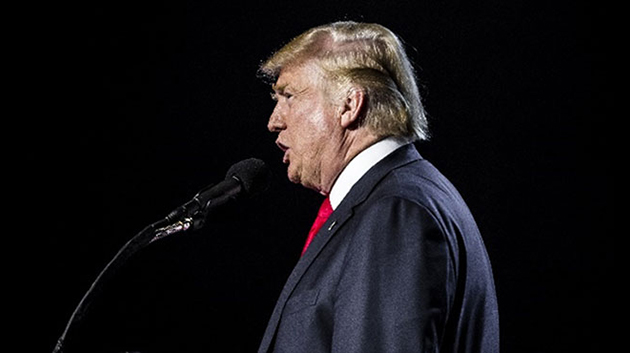President Trump Revises North Korea Policy to Increase Pressure on China
Key points in this article:
- Mortified by China’s failure to apply pressure on North Korea, Trump decided to sanction Chinese companies
- Warmbier’s death and unsatisfactory outcomes from the Diplomatic and Security Dialogue triggered Trump’s new stance
- Trump has reinstated the Freedom of Navigation program in the South China Sea
On 29 June, U.S. President Donald Trump informed Congress of his decision to sanction Chinese companies and provide USD 1.4 billion worth of arms support to Taiwan. His decision to revise his friendly approach toward China was based on China’s continued illegal transactions with North Korea: a clear message that the U.S. is no longer expecting cooperation from China.
In his joint press conference with South Korean President Moon Jae-in, Trump addressed the death of Otto Warmbier, and criticized Obama’s North Korea policy. “The era of patience [towards North Korea] is over,” he declared. He pronounced his intention to cooperate with Japan and South Korea to increase pressure on North Korea by enforcing sanctions.
In leadership talks between China and the U.S. in April, Trump expressed his hope that China would cooperate in bringing an end to North Korea’s nuclear developments. North Korea, however, has continued their missile experiments.
While Trump tweeted his disappointment that China’s attempt to deal with North Korea had “not worked out”, his National Security Advisor H.R. McMaster was more direct: “I don’t think China is doing enough now because the problem is not resolved,” he said.
The U.S. Department of the Treasury placed sanctions on China’s bank of Dandong due to suspicions of illicit transactions with North Korea. The bank of Dandong was the secret passage that North Korea used for foreign currency dealings, and having it placed under sanction will be a significant blow to North Korea.
What Made Trump Deviate From Cooperation With China?
There were two reasons for Trump’s change of policy: Warmbier’s death, and the unsatisfactory outcomes from the Diplomatic and Security Dialogue held between the U.S. and China on 21 June.
Trump issued a statement on Warmbier’s death: “There is nothing more tragic for a parent than to lose a child in the prime of life”. He said that it added to his conviction to act.
At the Diplomatic and Security Dialogue, however, the Chinese authorities condemned U.S. demands to tighten enforcement of sanctions on Chinese companies and to stop exporting crude oil to North Korea. “The U.S.-South Korea joint military practice and North Korean nuclear-missile testing should be suspended simultaneously,” Yang Jiechi maintained. The talks only contributed to a souring national relations.
In addition, Yang refused to sign a joint statement and boycotted the joint press conference. Only Secretaries Rex Tillerson and James Mattis attended what was meant to be a joint conference.
How Will Trump Pressure China?
The Chinese bank recently placed under U.S. sanctions was only one of the 10 Chinese companies on the U.S.’s blacklist, and for the moment the sanctions will be limited in order to gauge China’s reaction. In addition, new models were conspicuously absent from the U.S. arms support for Taiwan, leading some to speculate that everything is still under consideration.
In a speech on 28 June however, McMaster explained that the North Korea problem is of greater urgency than ever before, and that Trump has ordered him to consider all possible measures, including military.
On 7 and 8 July, the G20 summit will be held in Germany, and Trump and Xi have planned further talks. In the meantime, Trump has now reinstated the Freedom of Navigation program in the South China Sea, which is seen as a further step by Trump to increase pressure on China.
While Trump is often criticized for his seemingly isolationist America First policy, it is becoming increasingly clear that the policy is an acknowledgement of America’s responsibility to the rest of the world. As he said in his inaugural address, “Together, we will determine the course of America and the world for years to come.” Trump’s approach is therefore far from an isolationist policy.
Japan, the Asian economic superpower, is also endorsing the new sanctions, but we expect more. Japan must establish sufficient self-protection powers – such as military strike powers and cyber attack policies – while reinforcing North Korean sanctions and maintaining a cooperative stance towards the U.S.



















